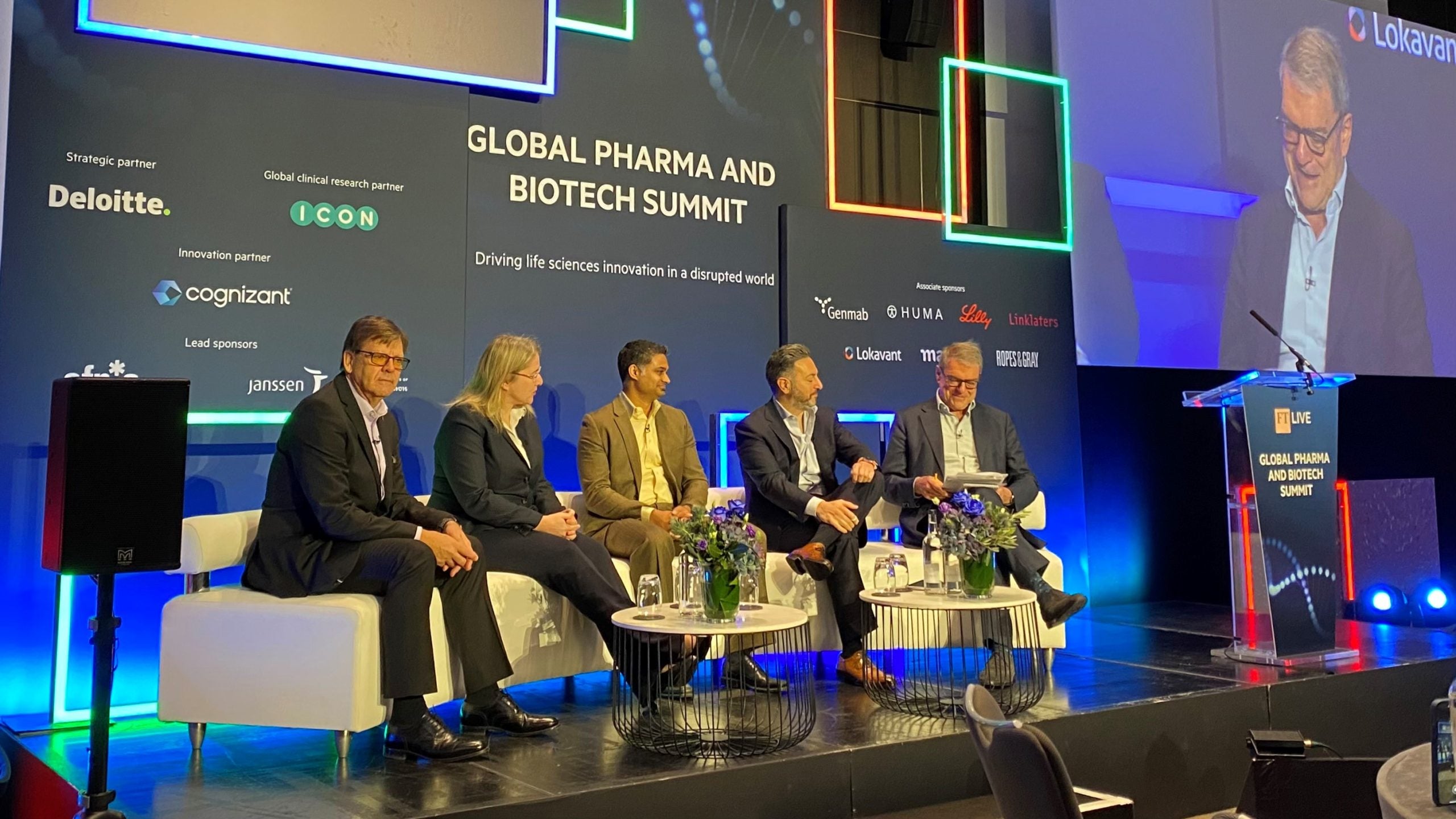
Even though artificial intelligence (AI) and its models have become topical in the past few months, there is little conversation about evidence and the value of outcomes, says Lokavant CEO Rohit Nambisan.
Speaking at the final day of the FT Global Pharma and Biotech Summit in London, UK, Nambisan explained that R&D is an evidence-generation business and it is challenging to bring new technologies into the cycle without proof of significant return on investment.

Discover B2B Marketing That Performs
Combine business intelligence and editorial excellence to reach engaged professionals across 36 leading media platforms.
Comparative baseline, attribution to a specific outcome and data availability are needed to prove AI’s value in the pharma chain, Nambisan added at the panel discussion ‘Pioneering Artificial Intelligence Across the Pharma Value Chain’.
It is now clear that AI will have an impact on every stage in clinical trials, said Michael Lewis, professor of life science innovation at the University of Birmingham. From creating a trial design to risk management, AI-based tools will help along the way.
However, Lewis noted that regulators are struggling to keep up with AI. In addition, with the increased use of AI by the public, he cautioned that it is “escaping faster than we can control it”.
Flagship Pioneering general partner Avak Kahvejian said that AI regulation is a very broad topic that cannot be painted with a single brush. He explained that AI tools that are used in drug development are not regulated, but the outcome of the tool is. Still, there is a need to identify where AI is used in drug discovery so the compound would still go through traditional safety evaluation.

US Tariffs are shifting - will you react or anticipate?
Don’t let policy changes catch you off guard. Stay proactive with real-time data and expert analysis.
By GlobalDataWith such a high impact on drug development and clinical trials, the question arises if humans are prepared for a life built with AI. Lewis said that academic education and the workforce are crucial ways to prepare the next generation. He explained that education should move away from asking questions “what and how” and lean more towards “why”. As for the workforce, the implementation of AI is likely to reduce the time needed for training.
Werngard Czechtizky, head of medical chemistry in respiratory and immunology at AstraZeneca, said it is critical for companies to train their workforce and bring them up to speed with AI implementation. She explained that AstraZeneca is using AI across its many departments, from chemistry to biology.
“AI and machine learning will become a part of everyone’s work,” she said.
Indeed, Kahvejian said that now people will be asking if a decision was made using AI. However, in a few years’ time, people will ask why AI was not used to make a decision.





